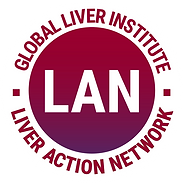Collaborating for a Cure
Our Partners in Transforming Liver Disease Research

Dr. Prashant Nighot
Professor of Medicine and Molecular and Precision Medicine
Penn State College of Medicine
Dr. Prashant Nighot is an accomplished physician-scientist whose work is transforming our understanding of liver fibrosis in chronic liver diseases, including autoimmune hepatitis. With deep expertise in autophagy and cellular stress signaling, Dr. Nighot’s research focuses on uncovering the molecular mechanisms that drive fibrotic progression, with the ultimate goal of developing targeted, mechanism-based therapies to halt or reverse scar tissue formation in the liver. His cutting-edge investigations leverage advanced cellular models and translational techniques to identify novel anti-fibrotic agents: an urgent priority in the field of hepatology where effective pharmacologic options remain limited.
By supporting Dr. Nighot’s research at Penn State College of Medicine, Hepatic Hope Foundation is investing in the future of fibrosis treatment. Our partnership will help accelerate the discovery of innovative therapeutic targets and advance preclinical studies that could pave the way for first-in-class interventions for patients with autoimmune hepatitis and other chronic liver diseases. This collaboration aligns closely with our mission of improving quality of life through research that brings us closer to curative, life-changing solutions.

Dr. Jonathan Stine
Associate Professor of Medicine and Public Health Sciences
Research Director, Penn State Health Liver Center
Dr. Jonathan Stine is a leading hepatologist committed to advancing treatments for liver diseases through innovative, patient-centered approaches. His research explores how exercise and lifestyle interventions can reduce liver inflammation and fibrosis, with a focus on metabolic dysfunction-associated steatohepatitis (MASLD). Emerging evidence from his lab suggests that chronic liver disease accelerates biological aging, and tailored exercise programs could potentially reverse these effects, improving liver health and overall patient outcomes. This work has significant implications for autoimmune hepatitis, offering alternative or complementary therapies to traditional treatments.
By supporting Dr. Stine’s research, the Hepatic Hope Foundation can help drive transformative advancements in non-pharmacologic treatments for autoimmune liver diseases. Funding this work enables critical analyses, including cutting-edge mRNA sequencing, that pave the way for new therapeutic strategies. This partnership aligns with our mission to improve the quality of life for patients with autoimmune hepatitis and related liver conditions, offering hope through innovation.

Global Liver Institute:
Liver Action Network
A global coalition of community-based organizations that amplifies patient and caregiver voices, advances liver health policy, and delivers education, resources, and advocacy to people affected by liver disease.
The Global Liver Institute’s Liver Action Network (LAN) is a worldwide alliance that brings together community-based organizations to strengthen liver health advocacy, education, and support systems. Launched in 2021, the LAN was designed to unify the voices of patients, caregivers, and providers while offering mentorship, technical assistance, and resources to its members. Through this collective model, the LAN ensures that communities most affected by liver disease are both represented and empowered in advancing care, awareness, and policy.
The LAN plays a pivotal role in amplifying the perspectives of those with lived experience, engaging them at local, national, and international levels to shape legislative priorities, reimbursement pathways, and regulatory decisions. Members also collaborate to share best practices, develop population-specific educational tools, and host screenings, support groups, and awareness campaigns tailored to their communities. This network-driven approach fosters culturally informed solutions that reflect the diverse realities of patients and caregivers worldwide.
By partnering with the Liver Action Network, the Hepatic Hope Foundation joins a unified global voice dedicated to addressing the unmet needs of liver patients. Together, we are committed to advancing education, supporting innovation in hepatology, and ensuring that advocacy efforts are grounded in the insights and expertise of the people most impacted by liver disease. This collaboration reflects our shared mission to improve quality of life, influence meaningful policy change, and move closer to life-saving solutions for those living with autoimmune hepatitis and other chronic liver conditions.
American Association for the
Study of Liver Diseases Foundation
A charitable organization that invests in innovative hepatology research and in the people who study and treat liver disease.
While we are not currently collaborating with the American Association for the Study of Liver Diseases Foundation (AASLDF), we deeply respect their mission and the impact they’ve had on the field of liver health. AASLDF is one of the most reputable organizations in liver disease research, known for fostering innovation and advancing the understanding of liver diseases. They provide essential support to scientists, physicians, and healthcare providers by funding cutting-edge research and promoting education on liver health.
AASLDF is instrumental in offering grants, fellowships, and other financial resources to researchers who are pushing the boundaries of liver disease prevention, diagnosis, and treatment. Their funding initiatives have played a pivotal role in many breakthroughs in liver health, from basic scientific discoveries to clinical applications. Additionally, AASLDF hosts the annual Liver Meeting, a globally recognized conference where experts come together to share the latest advancements in hepatology.
At Hepatic Hope Foundation, we align with many of AASLDF’s goals; we highly value their contributions to the field. We aim to direct our funding to pilot awards that directly support research in autoimmune hepatitis, liver support systems, and artificial liver development. By prioritizing these specific areas, we aim to accelerate innovations that hold the potential to revolutionize treatments for those affected by liver diseases, particularly autoimmune hepatitis.
